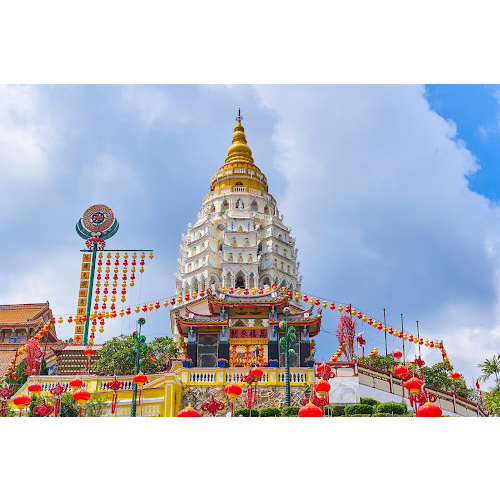Menstruation has long been regarded as a sacred and powerful phenomenon in ancient Indian science. In this article, we will delve into the spiritual significance of menstruation and explore the cultural practices surrounding it. From understanding the concept of Prana and its connection to menstrual cycles to debunking myths about not visiting temples during menstruation, we will uncover the deep-rooted beliefs and rituals that have shaped the perception of menstruation in India. Join us on this enlightening journey as we unravel the mysteries and celebrate the inherent beauty of this natural process.
Table of Contents
1. The Spiritual Significance of Menstruation in Ancient Indian Science
In ancient Indian science, menstruation holds a deep spiritual significance. It is believed that during this time, the energy of life known as Prana undergoes a transformation within a woman’s body. Prana is the vital life force that animates all living beings and gives them movement, direction, and motivation. Menstruation is seen as a natural cleansing process where excess doshas, or bio-energies, are eliminated from the body. This monthly cleansing is considered essential for female longevity.
Ayurveda, the ancient Indian system of medicine, plays a crucial role in understanding menstruation as a sacred process. According to Ayurveda, each dosha (Vata, Pitta, and Kapha) has its own function in the body, and menstruation is closely linked to the functions of Vata dosha. During menstruation, Vata is the predominant dosha, and Apana vayu, one of its elemental air functions, is responsible for the downward flow of menstruation. Any activity that interferes with this necessary downward flow of energy should be avoided during this time.
2. Debunking Myths: The True Reason Behind Not Visiting Temples During Menstruation
One of the common cultural practices surrounding menstruation is the restriction on visiting temples during this time. Many people believe that menstruating women are considered impure and therefore not allowed in temples. However, the true reason behind this practice, as explained by Guruji from Devipuram temple in Andhra Pradesh, is quite different.
Guruji explains that menstruating women are actually seen as living embodiments of goddess energy. They are considered so pure and powerful during this time that they were worshipped as goddesses in ancient times. The energy of the deity present in the temple idol is believed to transfer to the menstruating woman, making the idol lifeless. Therefore, to preserve the sanctity and energy of the temple deity, women were traditionally asked not to enter temples during their periods. This practice has nothing to do with considering women impure, but rather with recognizing their divine power and protecting the spiritual energy of the temple.
3. The Energetic Impact of Menstruation: Why Women Avoid Cooking and Eating with Others
In addition to the restriction on visiting temples, another cultural practice during menstruation is the avoidance of cooking and eating with others. This practice has its roots in the spiritual significance of eating and expelling energy during meals. In many cultures, eating is considered a sacred activity, and certain rituals are performed to ensure that the food has higher and positive energy. Orthodox Brahmins, for example, chant as they cook to infuse the food with positive energy.
During menstruation, women are more sensitive to absorbing energies from their environment. When a menstruating woman is in the presence of others who are eating, she may be affected by the lower energies that are expelled during the process of eating. This is why menstruating women were traditionally asked to stay away from others and eat separately. By maintaining a separate and positive energetic environment during menstruation, women can ensure that their own energy flow remains undisturbed and in harmony.
4. Exploring the Effects of Sexual Activity During Menstruation
In Indian culture, there is a belief that sexual activity during menstruation should be avoided due to the dynamics of energy flow. During sexual intercourse, there is an exchange of energy between partners, with women absorbing male energy and men releasing energy into the woman during ejaculation. This exchange of energy can disrupt a woman’s natural energy release and absorption process during menstruation.
For menstruating women, who are meant to release their own energy during this time, absorbing their partner’s energy can have adverse effects. Additionally, if a woman engages in sexual activity with multiple partners or partners with negative energy, it can further disrupt her natural energy flow. Therefore, abstaining from sex during menstruation is believed to be beneficial for a woman’s overall well-being and maintaining the harmony of her energetic system.
5. The Sacredness of Water: Why Swimming and Hair Washing are Avoided During Menstruation
Another cultural practice surrounding menstruation is the avoidance of water-related activities such as swimming and hair washing. According to Maya Tiwari, a spiritual and Ayurveda teacher, water is considered sacred and powerful in ancient Indian science. It has its own cosmic energy and memory, which can influence the flow of the menstrual cycle.
In Vedic understanding, water is guided by its cosmic memory and has its own rhythm and tune. During menstruation, when a woman’s energy is focused on releasing and cleansing, it is believed that the persuasive rhythm of water can disrupt this natural process. Therefore, to maintain the harmony of the menstrual cycle and honor the sacredness of water, women traditionally avoid swimming or washing their hair during menstruation.
6. Food Practices During Menstruation: Nourishing the Body and Balancing Energies
Food practices during menstruation vary across different regions of India, but they all share a common goal of nourishing the body and balancing energies. In many cultures, specific foods are believed to be beneficial for menstrual health and help maintain hormonal balance. For example, in Karnataka and Andhra Pradesh, women are encouraged to consume foods like ragi (finger millet), drumstick leaf, fenugreek, and jaggery during their periods.
Ragi is rich in iron, calcium, and fiber, which are essential nutrients for women’s health. Drumstick leaf is known for its high iron content and can help replenish the blood lost during menstruation. Fenugreek is believed to have properties that can regulate menstrual cycles and alleviate menstrual cramps. Jaggery is a natural sweetener that provides energy and helps combat fatigue often experienced during periods. These foods not only provide nourishment but also help balance the doshas and promote overall well-being during menstruation.




